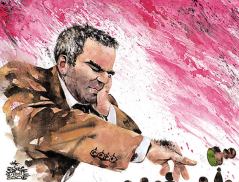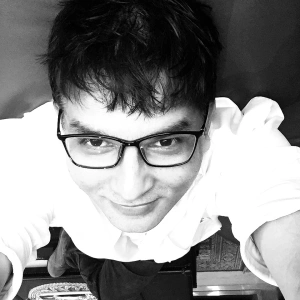Is it a welcome sign for Russia that chess legend Garry Kasparov is doing full time politics these days!
According to political observers, Kasparov is now taking aim at the power of Russian President Vladimir Putin.

They say American and European media prominently covered the chess legend’s recent sentencing for five days for leading a march against Putin.
Then, are we set to witness a grand master on way to presidency in Moscow or he is simply being projected as the Tsar’s opponent?
Kasparov, thicker than he once was, is 44. He was the world chess champion for 15 years. Until his retirement, two years ago, his dominance was unprecedented.
At home, he was a cross between the greatest of athletes and a revered intellectual; with his status came celebrity, foreign investment accounts, summers on the Adriatic, an apartment along the Hudson River, friendships among Western politicians and businessmen, and the attentions of beautiful women.
Then why has he volunteered for grim and, very likely, futile duty?

Like Martin Luther King of a prior generation, Gary Kasparov leads peaceful demonstrations. But the Russian authorities pounce on him, arrest him, and drag him to be booked at the police station. When we see the phalanx of Russian special-forces police numbering nearly 9000 (outnumbering the demonstrators by 6 to 1), we are reminded of the American police and their dogs as they nearly mauled the civil-rights demonstrators of the 1960s.
Yet, one difference still exists between King and Kasparov. An assassin’s bullet felled King. What will happen to Kasparov? Will he end in the same fate?
LikeLike
Noted the point. Hope the chess legend reads your comment. Thanks.
LikeLike
I believe Garry Kasparov should be regarded as Russia’s first post-Soviet dissident.
Starting in the 1960s, deep in the Cold War, the world essentially put under its protective custody a generation of anti-Soviet dissidents. Their names became household names–Sakharov, Sharansky, Bukovsky, Medvedev, Sinyavsky, Kopelev, others. Solzhenitsyn, too hot to handle, was exiled in 1974.
The primary reason for analogizing Mr. Kasparov to these dissidents is not for his opposition to the Putin government and his views on Mr. Putin, though these are worth listening to.
The more relevant reason is that he believes his life is in danger.
In an interview this past weekend for “The Journal Editorial Report” on Fox cable news, Mr. Kasparov spoke with his characteristic force and animation about what he believes are the underlying weaknesses of a Russia that looks to be thriving under Mr. Putin.
Mr. Kasparov was scheduled to fly back to Russia a few days after the interview, and at the end he was asked if he feared for his safety. One could not help but notice that his answer came after a brief but obvious hesitation.
“Yes,” he said, “I am. I’m afraid, my family’s afraid. It’s our greatest concern.”
Daniel Henninger
The Wall Street Journal
LikeLike
Russia has totally transformed from what it was! Some recent arrests also prove how oppression thrives in silence, with punishment for “punk prayer” !
LikeLike